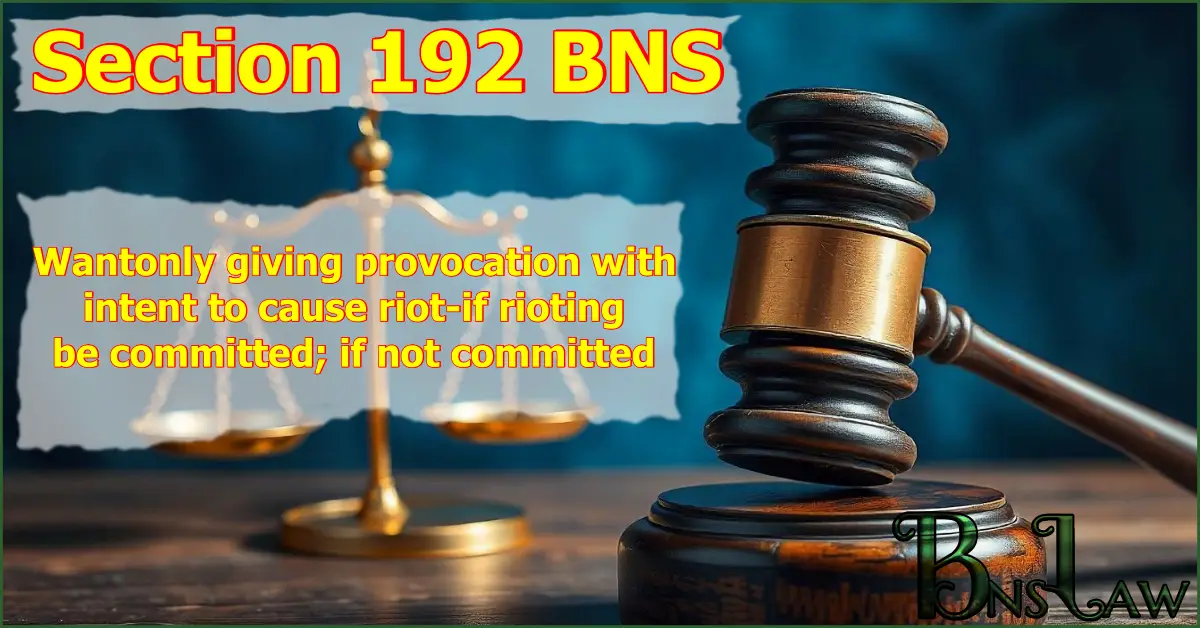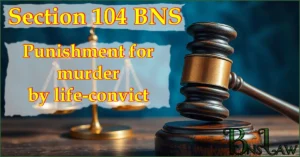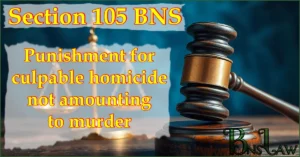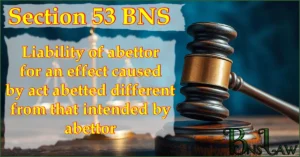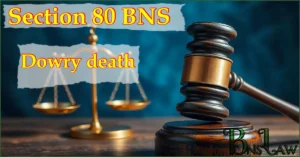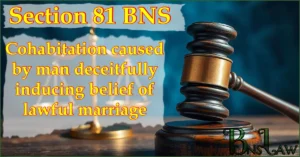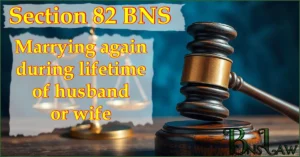Section 192 BNS | BNS 192
Wantonly giving provocation with intent to cause riot-if rioting be committed; if not committed.—Whoever malignantly, or wantonly by doing anything which is illegal, gives provocation to any person intending or knowing it to be likely that such provocation will cause the offence of rioting to be committed,
shall, if the offence of rioting be committed in consequence of such provocation, be punished with imprisonment of either description for a term which may extend to one year, or with fine, or with both; and if the offence of rioting be not committed, with imprisonment of either description for a term which may extend to six months, or with fine, or with both.
READ OTHER SECTIONS OF CHAPTER XI — OF OFFENCES AGAINST THE PUBLIC TRANQUILLITY
| Section No. | Section Title |
|---|---|
| 189 | Unlawful assembly. |
| 190 | Every member of unlawful assembly guilty of offence committed in prosecution of common object. |
| 191 | Rioting. |
| 192 | Wantonly giving provocation with intent to cause riot-if rioting be committed; if not committed. |
| 193 | Liability of owner, occupier, etc., of land on which an unlawful assembly or riot takes place. |
| 194 | Affray. |
| 195 | Assaulting or obstructing public servant when suppressing riot, etc. |
| 196 | Promoting enmity between different groups on grounds of religion, race, place of birth, residence, language, etc., and doing acts prejudicial to maintenance of harmony. |
| 197 | Imputations, assertions prejudicial to national integration. |
FAQs of BNS Section 192
-
192 BNS punishment and fine
Wantonly giving provocation with intent to cause riot, if rioting be committed: Imprisonment for 1 year, or fine, or both.
If not committed: Imprisonment for 6 months, or fine, or both. -
192 BNS cognizable or not
The offence under Section 192 of the BNS is cognizable.
-
192 BNS bailable or not
The offence under Section 192 of the BNS is bailable.
-
192 BNS trial court
Offence specified in Section 192 of the BNS is triable by Any Magistrate.
Important Points
- Cognizable Offences: These are offences where a police officer can arrest a person without a warrant.
- Non-Cognizable Offences: These are offences where a police officer cannot arrest a person without a warrant.
- Bailable Offences: These are offences where the accused can get bail from the police station itself. All bailable offences are listed in the First Schedule of the Bharatiya Nagarik Suraksha Sanhita (BNSS).
- Non-Bailable Offences: Offences in which bail is not granted directly from the police station but after hearing the case in the court, the judge decides when bail will be granted. All non-bailable offences are listed in the first schedule of the Bharatiya Nagarik Suraksha Sanhita (BNSS).
- In the above FAQ, “trial court” means the court that has jurisdiction to try the offence.
- In the above FAQ, the expression “Magistrate of the first class” and “Any Magistrate” does not include Executive Magistrates.
Read other Sections of the BNS
Reference Link: New Criminal Laws (BNS), Ministry of Home Affairs

